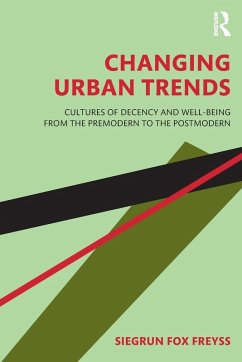The local public sector is deeply steeped in history. Studying the historic patterns of urban settlements helps us to understand the development of local priorities: zoning to separate residential areas by class and race, establishing police and fire departments to protect lives and property, building roads and canals to make transportation more efficient, and setting up school systems to educate students for work and adulthood. In this new book, the reader is guided through premodern conditions in order to identify paradigmatic changes that differentiate the premodern age from the modern age. The well-known contours of that transformation are then used to highlight trends that signal movements toward postmodernity. A great variety of books cover politics, policies, and governance at the local level. This book invites a more comprehensive look in that it structures the analysis around six basic themes: economics, politics and government, organization of work, education, human nature plus related practices, and criminal justice; the book invites a historical perspective by using the six themes to clarify paradigmatic shifts from premodernity to modernity and now postmodernity. The paradigmatic changes are examined to ask important questions: What can local governments learn from premodernity and modernity to promote desirable developments and avert unfavorable trends in postmodernity? What are progressive and regressive strategies? What social, cultural, and economic principles and practices are worth promoting and which ones to discourage? The broad nature of the book makes it relevant to students, scholars, and experts of urban politics and policies, as well as city planning, economic planning, ethics, and related fields.
Hinweis: Dieser Artikel kann nur an eine deutsche Lieferadresse ausgeliefert werden.
Hinweis: Dieser Artikel kann nur an eine deutsche Lieferadresse ausgeliefert werden.








